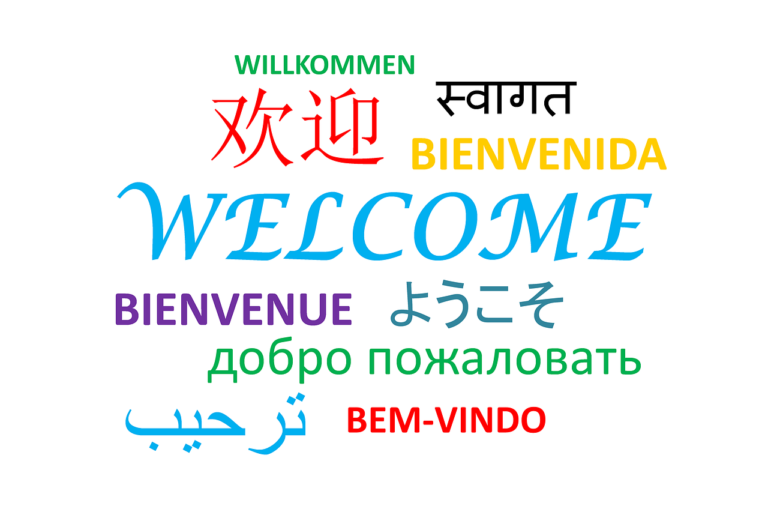Life benefits of being a polyglot
Table of contents
- Introduction
- Cognitive Benefits of Being a Polyglot
- Social Impact of Multilingualism
- Career and Professional Advantages of Being Polyglot
- Emotional and Psychological Effects of Multilingualism
- Challenges to tackle of Being a Polyglot
- Polyglotism in a Digital World
- Personal Examples from Polyglots
- Conclusion
- FAQs
Introduction
In a world that is more interconnected than ever, the ability to speak multiple languages can profoundly influence various aspects of life. But what does it actually mean to be a polyglot, and how does being multilingual affect you mentally, socially, and professionally? Whether you speak two languages or ten, the effects of being a polyglot go far beyond simple communication.
We made a detailed description with life examples of how does being a polyglot could affect people’s life and of course, pointing out the challenges and how to overcome them.
Let’s explore the ways in which being a polyglot can reshape your life and broaden your horizons.
What Does It Mean to Be a Polyglot?
As everybody knows, polyglot is someone who can speak multiple languages fluently. While the exact number of languages one must speak to earn this title varies, it’s generally accepted that knowing more than three qualifies. Polyglots often juggle different languages for work, travel, and daily life, blending cultures and perspectives into their world.
The Global Significance of Multilingualism
Speaking multiple languages is becoming increasingly valuable. In the age of globalization, where businesses span continents, and people from diverse backgrounds connect daily, being multilingual is a sought-after skill.
More than a third of the world speaks at least two languages, and being part of this global community opens doors you may never have considered before.
Cognitive Benefits of Being a Polyglot
Enhanced Memory and Brain Function
One of the standout cognitive benefits of being a polyglot is enhanced memory. Learning and regularly using different languages strengthens the brain’s ability to retain information. Think of your brain as a muscle – using multiple languages acts like a mental workout that keeps it sharp.
For example, a polyglot who speaks French, English, and Arabic may switch between languages in conversation, which requires active recall and improves memory retention.
Over time, this mental flexibility also makes it easier to remember other types of information, whether it’s a shopping list or complex concepts.
Research from the Harvard Business Review highlights that learning multiple languages boosts memory and problem-solving skills.
Increased Problem-Solving Skills
Another cognitive advantage of being multilingual is the boost it gives to problem-solving skills.
Polyglots are used to thinking in different languages, which helps them approach problems from various angles. This mental agility allows them to find creative solutions faster than monolinguals.
For example, when faced with a challenging situation at work, a polyglot might think of different ways to address the problem, drawing from their experience of switching linguistic frameworks and adapting to different cultural contexts.
Better Multitasking Abilities
Multitasking is another area where polyglots excel. Juggling multiple languages sharpens the brain’s ability to handle more than one task at a time. Imagine someone switching between English for a work email and Spanish for a conversation with a colleague, all while keeping track of their day’s to-do list.
This constant mental switching trains the brain to be more efficient at managing various tasks, leading to improved multitasking abilities in both professional and personal life.
Social Impact of Multilingualism
Broader Social Circles and Friendships
Learning and mastering new languages gives a significant boost to your self-confidence. Whether it’s ordering a meal in perfect French at a Paris café or effortlessly navigating a conversation in Japanese, each successful interaction reminds you of your linguistic abilities. This self-assurance doesn’t just apply to language; it spills over into other areas of life, making you more confident in handling unfamiliar situations or challenges.
For instance, a polyglot might feel empowered walking into a room full of international colleagues, knowing they can hold their own in multiple languages, which in turn strengthens their sense of identity and competence.
Deeper Cultural Understanding
Learning a language is like holding a key to a culture’s inner workings. When you speak another language, you gain access to idioms, humor, and expressions that go beyond direct translation, allowing you to understand a culture on a much deeper level. It’s not just about learning words—it’s about seeing the world through a new lens.
For instance, understanding how Japanese culture values indirect communication and subtlety helps you not only speak the language, but also navigate social norms with grace and empathy.
This deeper cultural understanding fosters respect, helping you adapt to new environments more seamlessly.
Improved Communication Across Cultures
Multilingualism also makes you a more skilled communicator, especially in cross-cultural settings. Being fluent in more than one language doesn’t just mean you can speak with more people—it also sharpens your ability to pick up on nonverbal cues, tone, and cultural nuances.
A polyglot, for example, who can comfortably switch between English and Arabic may know when to be direct and when to use more formal, respectful language depending on the cultural expectations of the conversation.
This makes multilingual people more adaptable and effective in international teams or social settings, helping them bridge gaps and avoid misunderstandings.
Career and Professional Advantages of Being a Polyglot
In the modern workplace, being multilingual is a game-changer. As businesses expand globally, the demand for polyglots is higher than ever, and the ability to communicate across languages can set you apart in competitive job markets. Beyond just being a valuable skill on your résumé, being a polyglot opens doors to unique professional opportunities, making you a sought-after asset in various industries.
Increased job opportunities
In a globalized economy, companies need employees who can communicate with international clients, partners, and suppliers. Being a polyglot gives you a clear edge when it comes to job applications—especially in multinational corporations, diplomatic fields, or tourism.
For instance, an employee who can fluently speak Mandarin, Spanish, and English is invaluable for a global tech company that wants to expand into Asian and Latin American markets.
Knowing the local language allows you to form better business relationships, making you an indispensable part of the team.
Higher earning potential
Fluency in multiple languages doesn’t just open doors—it can also increase your paycheck. Many businesses, particularly those with international branches, offer higher salaries to employees who can communicate effectively with diverse clients or teams.
For example, a bilingual lawyer or financial analyst who speaks both English and German can work with clients in two major economic hubs, boosting their earning potential significantly.
Multilingual professionals often find themselves eligible for promotions or special assignments that would otherwise be out of reach for their monolingual peers.
Ability to Work in Global Markets
Polyglots have a unique advantage when working in international markets. Whether you’re in sales, marketing, or management, understanding the language of your target market allows you to tap into the cultural context, making your strategies more effective.
Picture a marketing executive fluent in Arabic and French who can effortlessly navigate between Middle Eastern and North African markets, adjusting their approach based on language, tradition, and consumer behavior.
This kind of adaptability gives multilingual professionals a distinct advantage in an increasingly globalized business landscape.
Emotional and Psychological Effects of Multilingualism
The emotional and psychological impacts of being a polyglot run deep, often influencing how we perceive ourselves and interact with the world. Beyond the obvious cognitive benefits, multilingualism offers a unique sense of confidence, well-being, and mental resilience that can shape your emotional life in profound ways.
Boost in self-confidence
Learning and mastering new languages gives a significant boost to your self-confidence.
Whether it’s ordering a meal in perfect French at a Paris café or effortlessly navigating a conversation in Japanese, each successful interaction reminds you of your linguistic abilities. This self-assurance doesn’t just apply to language; it spills over into other areas of life, making you more confident in handling unfamiliar situations or challenges.
For instance, a polyglot might feel empowered walking into a room full of international colleagues, knowing they can hold their own in multiple languages, which in turn strengthens their sense of identity and competence.
Reduced Chances of Dementia and Cognitive Decline
One of the most profound long-term benefits of being multilingual is its positive effect on brain health. Studies have shown that polyglots are at a lower risk of developing dementia and Alzheimer’s disease later in life.
By constantly switching between languages, your brain stays active and engaged, creating a cognitive reserve that helps delay age-related mental decline.
This is especially crucial as people live longer, and maintaining mental sharpness becomes more important than ever.
Overcoming Personal Challenges and Learning Persistence
Mastering a new language is no small feat – it requires persistence, dedication, and the ability to overcome obstacles. Every language learner faces moments of frustration, but polyglots learn to push through these challenges, developing resilience in the process.
This ability to keep going despite setbacks can shape your emotional fortitude, teaching you to approach other areas of life – whether it’s personal goals or professional hurdles – with a similar level of perseverance. It’s not just about fluency – it’s about learning to embrace the journey and grow stronger from the challenges along the way.
Challenges of Being a Polyglot
While being a polyglot offers numerous advantages, of course, it’s not without its challenges. From mental fatigue to cultural identity struggles, navigating the complexities of multiple languages can present unique difficulties. Let’s explore some of the lesser-known hurdles that polyglots face and how they manage to overcome them.
Language Fatigue and Cognitive Overload
One common challenge polyglots encounter is language fatigue. Constantly switching between languages can sometimes lead to cognitive overload, where the brain feels exhausted from juggling vocabulary, grammar, and context.
For instance, a polyglot attending a meeting in one language and immediately jumping into another conversation in a different language might struggle to find the right words, leading to moments of confusion.
This can be mentally draining, and many polyglots develop strategies—such as taking mental breaks or focusing on one language at a time—to combat this form of exhaustion.
Cultural identity conflicts
Another challenge is the potential conflict with cultural identity. Speaking multiple languages often means navigating different cultural expectations and norms, which can create a sense of “cultural dissonance.” For example, a polyglot who speaks both Arabic and French may find themselves torn between different cultural values when moving between communities.
This can lead to an internal struggle of belonging – where do they truly fit in? Polyglots often have to reconcile these identities, finding a balance between their various cultural influences and their sense of self.
Maintaining Language Fluency Over Time
Maintaining fluency in multiple languages is no easy task. Languages can fade over time if they’re not used regularly, which means polyglots often have to work to keep their skills sharp. This can be particularly challenging for people who speak more than three or four languages.
Imagine a polyglot who speaks Russian, Japanese, Italian, and English – without regular practice, it’s easy for lesser-used languages to slip.
Polyglots often use a combination of reading, watching foreign films, and engaging with native speakers to maintain their fluency across all their languages.
Polyglotism in a Digital World
The rise of technology has transformed how polyglots interact with languages, making it easier to learn, practice, and connect with people worldwide. In a digital age, being multilingual has taken on new dimensions, allowing polyglots to stay engaged with their languages in creative and accessible ways.
Access to More Information Online
Polyglots have the advantage of being able to consume content in multiple languages, which broadens their access to information online. Whether it’s reading news articles in French, exploring research papers in German, or watching documentaries in Mandarin, multilingual individuals can engage with a much wider pool of knowledge.
For instance, a polyglot researching global economic trends can dive into sources from various countries, gaining a more comprehensive understanding of the topic from different cultural and linguistic perspectives. This access is invaluable in a world where information is power.
Engaging with Multilingual Communities on Social Media
Social media has become a hub for multilingual engagement, allowing polyglots to connect with people from around the world at the click of a button. Platforms like Twitter, Reddit, and Instagram offer communities where users can share content in different languages.
A polyglot who speaks Spanish and Portuguese, for example, can follow influencers and engage with followers from Latin America, discussing everything from pop culture to politics.
This real-time interaction helps polyglots stay fluent and culturally connected, even if they’re not living in the country where the language is spoken.
Learning New Languages through Technology
Learning languages has never been more accessible, thanks to the proliferation of language-learning apps, websites, and online courses.
Polyglots can continue expanding their language repertoire through platforms like Duolingo, Babbel, or even YouTube tutorials. Imagine someone already fluent in Italian and French deciding to pick up Korean using an app on their phone – they can learn new phrases, practice speaking, and even interact with native speakers from anywhere in the world.
Technology has revolutionized the way polyglots can acquire and maintain their language skills, making the journey to multilingualism more exciting and achievable than ever.
Personal Examples from Polyglots
Every polyglot has a unique story, and their experiences with multiple languages often shape their lives in unexpected ways. Whether it’s through travel, career opportunities, or family life, polyglots encounter life-enriching moments that only multilingualism can provide. Here are a few ways polyglots experience the world differently.
A Traveler’s Experience: Connecting with Locals
For polyglots, traveling isn’t just about seeing new places—it’s about truly connecting with the people who live there. Imagine a polyglot visiting a small village in Italy and striking up a conversation in perfect Italian with a local shopkeeper.
Not only do they learn about the best hidden spots to visit, but they also gain insider knowledge about the community’s traditions and stories, something that’s often inaccessible to tourists who only speak English. These interactions create lasting memories and a deeper understanding of the places they visit.
A Career Change: Opportunities in Translation and Interpretation
For many polyglots, their love of languages turns into a rewarding career. Take, for example, a polyglot who worked in marketing but later shifted to becoming a professional interpreter. The ability to bridge communication gaps between different cultures becomes not only a job but a passion.
Whether it’s translating live at international conferences or working with NGOs to facilitate important cross-cultural projects, polyglots can carve out careers that use their language skills in impactful ways.
Life at Home: Raising Multilingual Children
Polyglots often extend their language abilities to their family life, raising children who are multilingual from birth. Imagine a home where the parents speak Spanish, French, and English, and the children grow up naturally switching between languages depending on the situation. This not only gives the children an academic advantage but also helps them develop a strong sense of cultural diversity from an early age.
Being raised in a multilingual household opens doors to new perspectives and fosters a deep appreciation for the richness of languages and cultures.
In conclusion
By exploring the cognitive, social, emotional, and professional impacts of multilingualism, it’s clear that being a polyglot shapes life in countless enriching ways. From international business to personal connections, speaking multiple languages offers a wealth of opportunities that go far beyond communication alone.
FAQ
Yes, it’s possible to learn new languages at any age. While children may acquire languages faster, adults can still become fluent with dedication and practice.
Generally, knowing more than three languages qualifies someone as a polyglot, but the term is flexible.
Not usually. However, if you don’t use your native language regularly, you may temporarily forget words, but the fluency typically returns with practice
In most cases, learning multiple languages doesn’t interfere with mastering one. In fact, it can improve overall language learning ability.
Regular practice, engaging with native speakers, consuming media in the target language, and using language-learning apps are great ways to maintain fluency.





